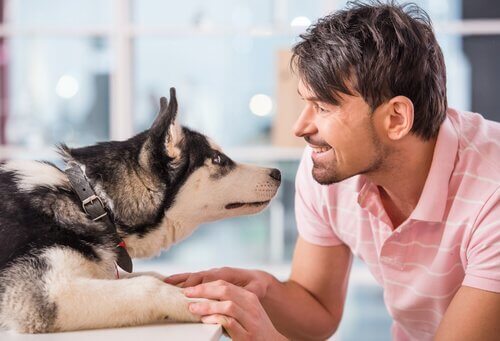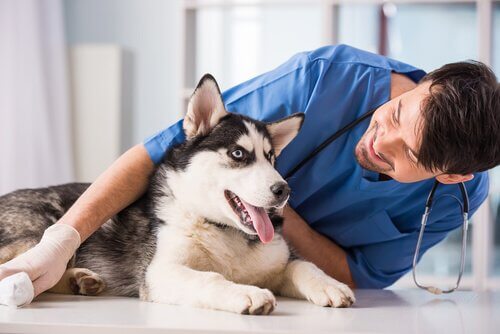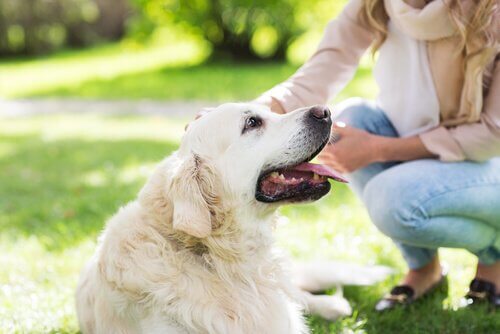5 Things You Should Ask an Ethologist

These days, pets are being given more and more attention and care. In recent times, you can find certain animal specialists to take care of different areas of pet health. For example, a few decades ago a vet was enough to care of your animals. But today there are vets, surgeons and even psychologists for pets. And lately, you may have heard talk about another profession, the ethologist. But do you really need your pet to see one? Well, to know what you can ask an ethologist, we first need to know what they are and what they do.
What is an ethologist?

As we mentioned at the start of this article, there are normal vets for pets, that could be likened to a GP. There are also specialists that you can consult depending on the type of problem your pet might have.
An ethologist is a doctor that studies, examines and diagnoses behavioral problems in animals.
Of course, there are many people who have paid money for a short course on animal behavior, and they give “advice” on what to do and how to do it.
However, an ethologist is an expert who can go to your home, look at the dog’s surroundings, analyze your pet’s behavior and even interview the owners. He or she will be able to tell if any problems are caused by the surroundings or by something more serious.
Once you receive the diagnosis, the specialist can prescribe a treatment that can have various parts. For example, treatment could include pharmaceutical or surgical aspects, without forgetting of course behavior modification.
Don’t confuse this last aspect with basic dog training. Training is based on teaching the animal to obey. However, behavior modification is carried out to eradicate a certain bad behavior or habit, or to teach it other behavior patterns that will help it to overcome some problem it might have.
What to ask an ethologist
Knowing what your dog wants, as well as how and when it wants it can be something of a mystery for most people, since, of course, your dog can’t talk. You can imagine what’s going through its head, but you can never be 100% sure that you’re right.
Due to certain behavioral problems in some dogs, their owners may have some doubts and questions. Now let’s see what you could ask an ethologist and what some potential answers could be.
What shouldn’t I do if my dog is aggressive?
As we’ve said above, asking for advice over the phone from those who call themselves professionals on the subject isn’t the solution. A professional ethologist won’t answer your questions over the phone, since to give a complete answer they need to go to your home and examine the animal’s daily surroundings. Having said that, here are some things they may mention that you should take care not to do:
- Don’t provoke the animal
- Don’t wait for the aggressiveness to go away on its own
- You shouldn’t try to intimidate it and show it you’re the boss
- Don’t hit or punish it
- Try not to reinforce its aggressiveness
- Don’t forget that an aggressive dog can be a danger to others
What should I do if it’s aggressive?
This is what an ethologist may tell you:
- Keep yourself safe
- Avoid aggressive situations
- Teach your dog that treats can be earned, especially with good behavior
- Create a routine of activities
- Positive reinforcement for good behavior
What should I do if my dog is aggressive towards my child?
All of the above suggestions may be useful, although it’s necessary to know in which situations your dog becomes aggressive towards your child. Depending on these circumstances, the advice will be different.
Ask an ethologist: Why does my dog stare at me?

You may have noticed that this happens after you move house, for example, or after abrupt changes such as a divorce or if a son or daughter leaves home. Although the changes might be good for you, they can still affect your pet.
Your animal isn’t capable of assimilating these changes on its own, and looks for support from its owners with its eyes.
How can I control my dog when visitors arrive?
This is one of the greatest issues for dog owners. However, it is one of the easiest problems to deal with or control. For example, according to one ethologist specialist, you could distract its attention. This could be by means of playing with the dog while another person opens the door.
These are some of the most common questions you could ask an ethologist. And remember that an ethologist is a specialist who can give you appointments just like any other doctor. If you go for cheaper options, sometimes you may make your pet’s behavior worse.